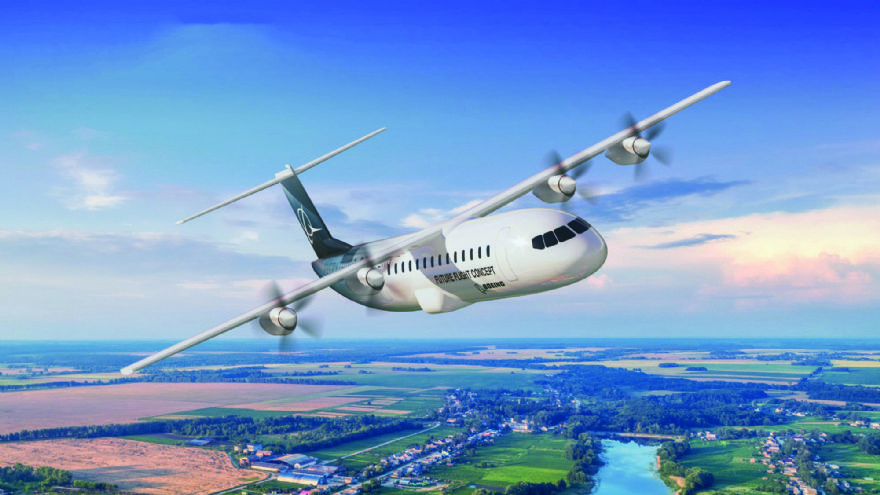
As the commercial aviation industry maps a path to ‘net zero’ emissions,
Boeing has unveiled a new data modelling tool — Cascade — to show the most effective scenarios for reaching the destination by 2050. The model includes consultation with leading universities and will continue to be used with key stakeholders. The company also shared illustrative hydrogen and electric concepts that could power the future of flight.
Chris Raymond, Boeing’s chief sustainability officer, said: “There are multiple ways to a future where aviation has zero climate impact. We created Cascade on a foundation of credible data and analytical models to allow users to explore various pathways to ‘net zero’. We think this model will help our industry visualise, for the first time, the real climate impact of each solution, from beginning to end, and to inform the most probable and effective strategies.”
The tool appraises Boeing’s major paths to decarbonise aviation and their potential power to reduce emissions through: aeroplane fleet renewal; renewable energy sources such as sustainable fuel, hydrogen and electric propulsion; operational efficiency improvements; and advanced technologies.
The Cascade model assesses the full lifecycle impacts of renewable energy by accounting for the emissions required to produce, distribute, and use alternative energy carriers such as hydrogen, electricity, and SAF (sustainable aviation fuels). Boeing plans to use this tool with airline operators, industry partners, and policymakers to inform when, where, and how different fuel sources intersect with new aeroplane designs.
Mr Raymond added: “We must take a holistic view to decarbonisation, and when we do that, it is clear that SAF is a necessary lever. We know it will take a ‘SAF and’ approach and not a ‘SAF or’ approach to achieving ‘net zero’ by 2050. As part of our ‘SAF and’ approach, Boeing is continuing to advance the safety and viability of other renewable energy sources and their use on aircraft. Since the mid-2000s, the company has conducted six hydrogen technology demonstrations with crewed and uncrewed aircraft using hydrogen fuel cells and combustion engines.”
Aside from its work on hydrogen applications, Boeing has invested in electric-powered aircraft through its joint venture Wisk, which is working to bring to market the first all-electric, autonomous air taxi in the USA. Wisk’s current all-electric, eVTOL aircraft has undertaken more than 1,600 successful test flights.